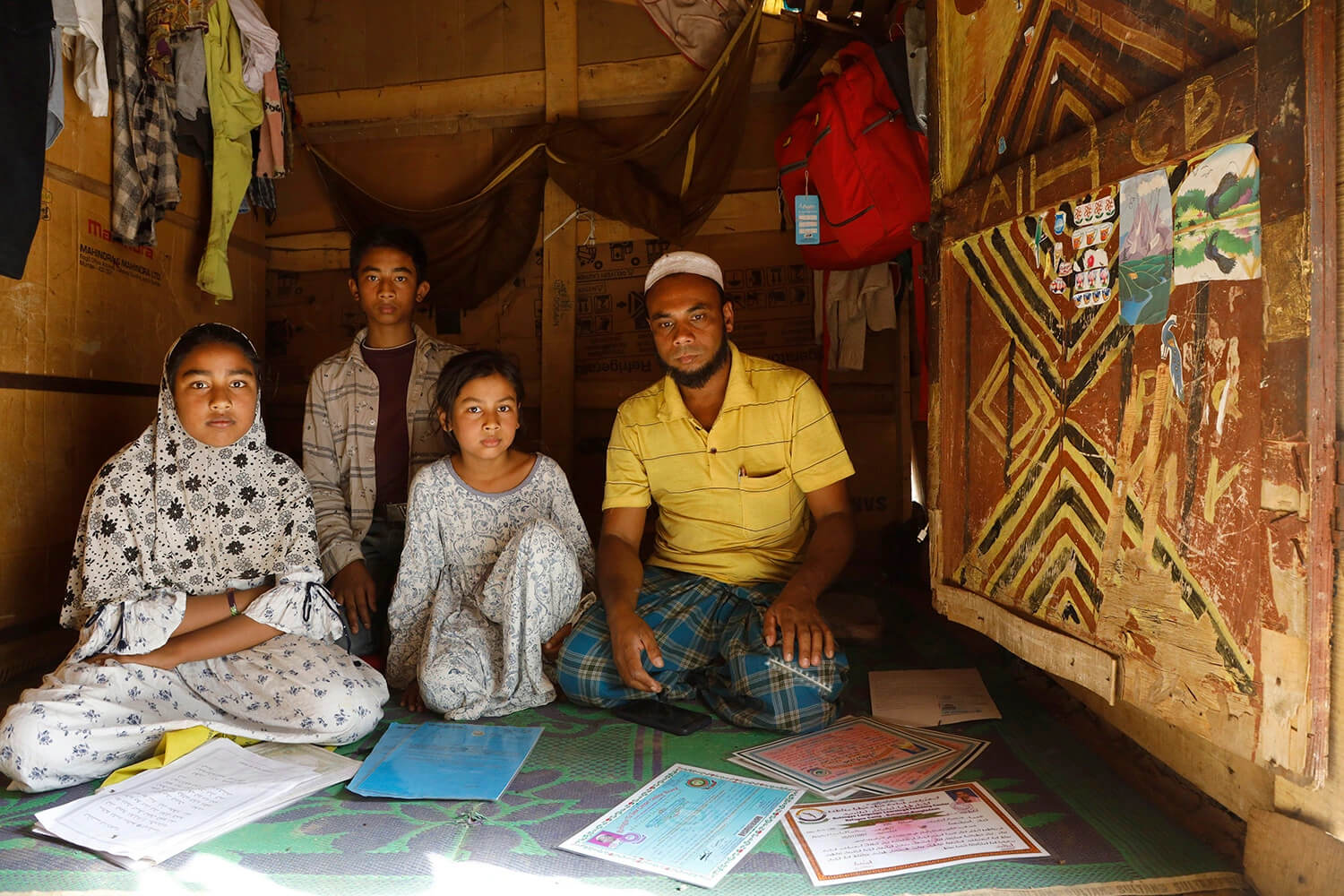The Indian government has vowed to shift over 1,100 Rohingya refugees to the Bakkarwala area in New Delhi and provide housing, basic essentials, and police protection.
Minister for Housing and Urban Affairs Hardeep Singh Puri remarked on Twitter that the “landmark decision” was made in pursuance of India’s policy of welcoming all those that seek refuge in the country.
Puri reaffirmed India’s commitment to the United Nations Refugee Convention, which mandates countries to provide refuge irrespective of race, religion, or creed. He added that the decision would disappoint those spreading false information about the Indian refugee policy and the 2019 Citizenship (Amendment) Act (CAA), which provides minority religious communities in Bangladesh, Pakistan, and Afghanistan, including Hindus and Christians, with Indian citizenship. Opposition leaders and rights groups have previously criticised the law for singling out Muslims and excluding them from the law.
Those who made a career out of spreading canards on India’s refugee policy deliberately linking it to #CAA will be disappointed.
— Hardeep Singh Puri (@HardeepSPuri) August 17, 2022
India respects & follows @UN Refugee Convention 1951 & provides refuge to all, regardless of their race, religion or creed.@MIB_India @NBirenSingh pic.twitter.com/6jyMl9dJ7Q
According to ANI, the decision to relocate the 1,100 Rohingya Muslims housed in tents was made during a meeting last month that was chaired by the Chief Secretary of Delhi and attended by representatives from the Delhi government, Delhi Police, and the Indian Ministry of Home Affairs.
During the meeting, it emerged that the Delhi government was spending Rs. 700,000 ($8,900) each month as rent to house the Rohingyas in tents. Authorities shifted them to the Madanpur Khadar region after a fire broke out in their previous camps.
Bangladesh has repatriated 7 lakh Rohingya Muslim refugees back to Myanmar till date.
— Rishi Bagree (@rishibagree) August 17, 2022
It is planning to send the remaining Rohingya refugee with the help of China.
Bangladesh doesn't want to keep a single Rohingya Muslim.
Bangladesh is a Muslim Country. pic.twitter.com/QJoQlVO3k9
A senior official said that 250 apartments constructed by the New Delhi Municipal Council for the Economically Weaker Section (EWS) category will now house the refugees. The officials also urged the Delhi Police to provide security to the apartments.
The Social Welfare Department of the Delhi Government, meanwhile, has been asked to provide basic amenities such as fans, telephones, food, and recreational facilities. Crucially, authorities will give all those housed in the flats United Nations High Commissioner for Refugees (UNHCR) identity cards.
In another related development, the Delhi Police’s Special Branch was asked last month to begin making weekly demographic information reports on “Rohingya illegal migrants” in New Delhi. These reports include refugees’ UNHCR identification card numbers as well as their date of arrival and the address they came from.
According to a letter sent by the Deputy Commissioners of Police (Special Branch), Nishant Gupta, all districts have been asked to appoint a nodal officer to monitor and update information on the illegal Rohingya population in their respective jurisdictions.
Easy, simplistic analogies are tempting to trot out. The government is committed to human rights and humanitarian law but it also has a duty towards its citizens of providing security. Various considerations need to be balanced and this is precisely what is being done.
— Hardeep Singh Puri (@HardeepSPuri) June 21, 2018
Despite the announcement of housing assistance to the Rohingya this week, India has received much criticism for its treatment of the community. For instance, earlier this month, Rohingya refugees in Nuh, Haryana raised concern about police harassment, alleging the officers had launched arbitrary “verification drives” in camps to crack down on “anti-national elements.” Security forces searched the migrants’ houses for around three hours and impounded over 30 vehicles from the camp, which the police claimed did not have valid documents.
Police conducted a similar verification drive at the Chandeni-2 camp Ferozepur Namak on July 26 at 5 am. Likewise, in Manesar, 500 Rohingya families were asked to vacate their residences overnight, with intelligence officials claiming it was a clear case of “community policing” by local panchayats. Rohingya refugees have reported several such incidents of harassment and even physical abuse across several camps in Haryana.
Nevertheless, Puri’s announcement could mark a significant shift in India’s policy, which has largely centred around repatriation to Myanmar, where they face the threat of genocide and political persecution. In fact, India has previously expedited the deportation process even for refugees with UNHCR cards, which should theoretically protect them from arbitrary detention.
Around 40,000 Rohingya Muslims live in camps and slums around India—with high concentrations in Jammu, Hyderabad, Haryana, and New Delhi—and it is thought that many of them are undocumented.

